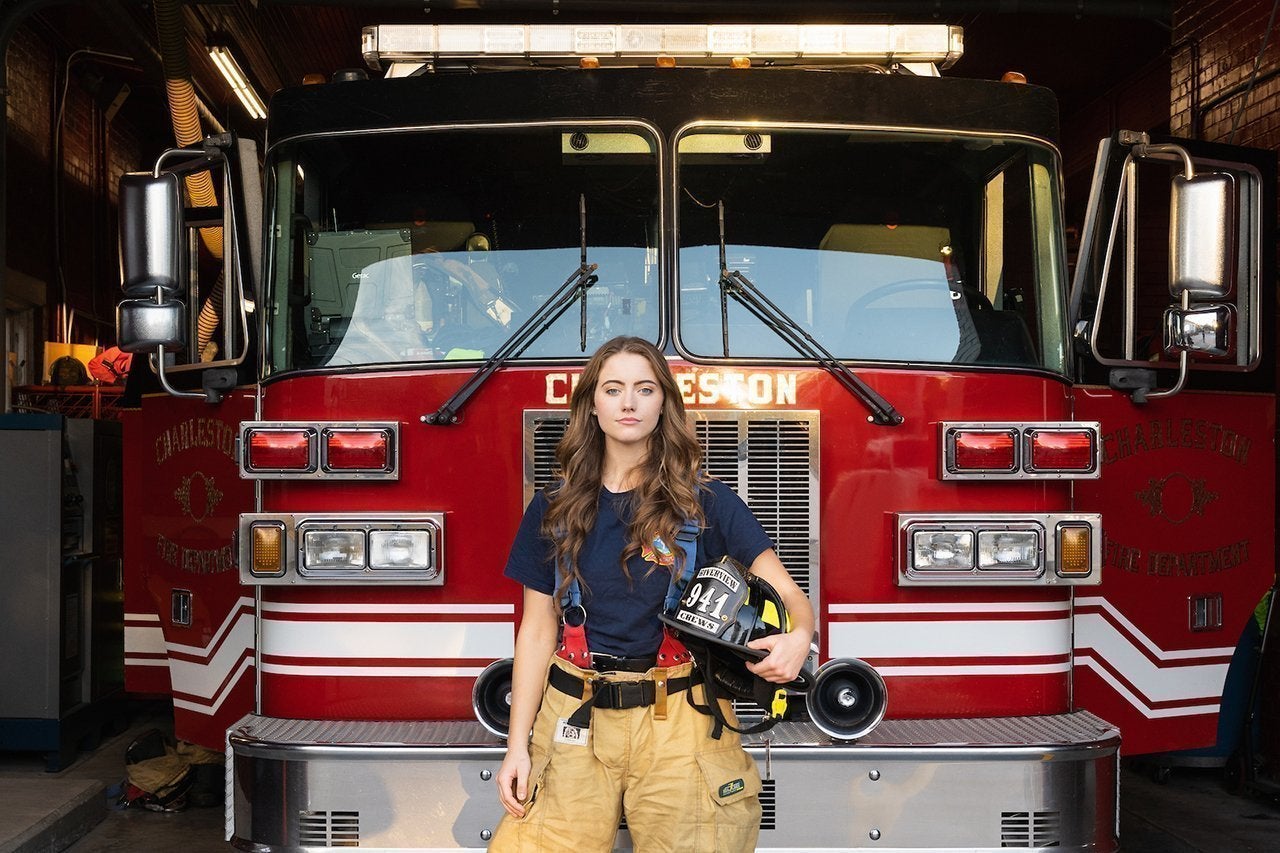By Isabel Crews
Riding home from high school with my older brother in the winter of 2017, I ended up going on my first call for the Riverview Volunteer Fire Department in Fort Mill, South Carolina. The call was nothing major: A 10-year-old had gotten stuck in an infant swing. I watched from my brother’s car as firefighters rushed to assist the panicked child. Afterward, my brother – a volunteer firefighter – told me that most firefighters in the world are volunteers, and that anyone 16 or older could train and take classes to become certified at 18.
Wanting to grow closer to my brother, I knew that’s what I wanted to do. And so I made the time, even if I didn’t have it. Between cross-country, flute, theater and dance, I somehow squeezed in training at the station and going on fire calls. I even did homework at the station just in case we got a call.
When I started out as a probationary firefighter, my department called us “blueberries,” referring to the blue helmets we wore to indicate that we weren’t yet certified. Blueberry or not, I still felt a surge of excitement rush through me whenever I felt the buzz of my pager. To become certified, I took classes every day at the community college over the summer, passing all 24 written exams and double that in physical assessments.
My first house fire as a “black helmet” was definitely a memorable night, starting when incident command ordered me to relieve a firefighter in the back of the house. From there, I climbed up to the charred roof with a young firefighter from the other department working the call and attempted to get one of the walls down. When part of the wall fell on him, I quickly assessed what had happened and helped get him up and out of harm’s way. It wasn’t easy yelling through our masks to communicate as we tried to complete our task safely, but, for hours, we continued trying to send people in and get people out as the conditions changed.
It was a tough night – my first call with a human fatality. But it made me reflect on the challenge of working with someone new and how I can best work with firefighters from other departments. When people say teamwork will be necessary no matter what you do in life, they’re right. If the firefighters from the department who arrived first had worked better as a team, and if I had been better prepared to jump in and join them, that night might have gone differently – the woman might have survived.
But, rather than dwelling on all the what ifs, it made me want to collaborate better with my fellow firefighters, especially new ones, to understand how to fall in sync and protect one another quickly. The fire service is not just a brotherhood: It’s a community that requires every firefighter on every call to work together to save the lives of others and each other.
Since coming to CofC, I haven’t spent as much time training and running calls, but every time I’m home, I turn on my pager for that surge of excitement.
A junior majoring in international studies, French and communication, Crews plans on pursuing a master’s degree in journalism and a career in international journalism. While also fighting fires, of course.




